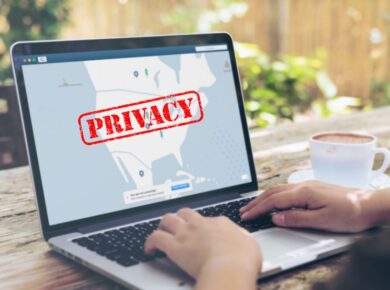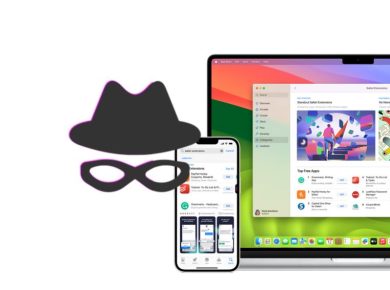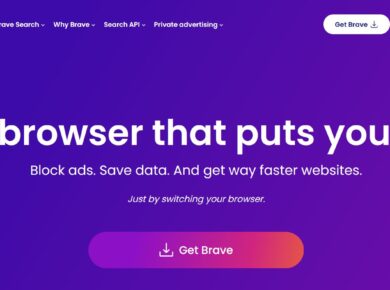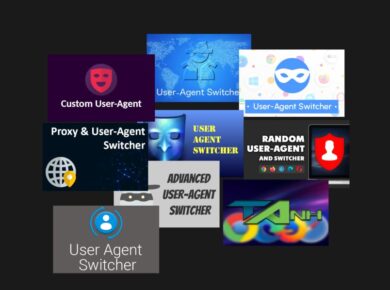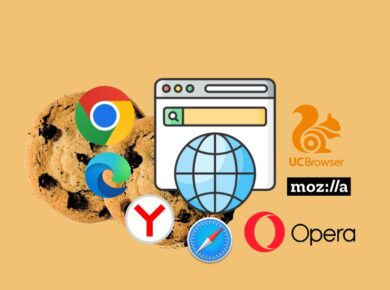Making sure kids are safe online has become more important than ever in a time when the internet is so important to everyday life. The internet is a huge ocean of information and fun, but it is also home to many dangers. More and more, parents, teachers, and guardians are using internet blockers to keep their kids safe. The targets of internet blockers are discussed in detail in this in-depth guide, as well as how they help keep kids safe online.
Why it’s important for kids to be safe online
As the internet becomes easier for more people to reach, kids are exposed to its pros and cons from a very young age. The internet can be a great way to learn, but it can also be dangerous. For example, it can expose you to inappropriate material, cyberbullying, online predators, and privacy breaches. You can’t say enough about how important it is for kids to be safe online. It protects their physical and mental health and lets them enjoy the good things about the digital world.
Why Use Internet Blockers?
Internet blockers, also known as web filters or parental control software, are tools designed to restrict access to specific types of content or websites. These tools are essential for several reasons:
- Protection from Inappropriate Content: Internet blockers prevent youngsters from accessing websites that contain explicit, violent, or harmful content.
- Prevention of Cyberbullying: By limiting access to certain social media platforms and chat rooms, internet blockers can help mitigate the risk of cyberbullying.
- Shielding from Online Predators: Blocking communication with strangers on certain websites and apps reduces the risk of encounters with online predators.
- Maintaining Privacy: Internet blockers can prevent youngsters from sharing personal information on unsafe websites.
Key Targets of Internet Blockers
To effectively safeguard youngsters, internet blockers target a variety of online threats. Here are the primary categories:
1. Adult Content
One of the primary targets of internet blockers is adult content. This includes websites featuring pornography, nudity, or sexually explicit material. Exposure to such content at a young age can have detrimental effects on a child’s development and well-being.
Example: Websites like Pornhub, RedTube, and other adult content providers are commonly blocked by internet filters.
2. Violent and Gore Content
Websites that depict extreme violence, gore, or graphic content are also targeted by internet blockers. Such content can be traumatizing for youngsters and can lead to desensitization to violence.
Example: Sites featuring violent video clips, gruesome images, or graphic news reports are often blocked.
3. Social Media and Chat Rooms
While social media platforms and chat rooms can be beneficial for social interaction, they also pose risks such as cyberbullying and online predators. Internet blockers can restrict access to these platforms, particularly for younger children.
Example: Platforms like Facebook, Instagram, Snapchat, and certain chat rooms can be restricted to prevent unwanted interactions.
4. Gambling and Gaming
Online gambling and certain gaming websites can lead to addiction and financial loss. Internet blockers can prevent access to these sites to protect youngsters from developing unhealthy habits.
Example: Websites like Bet365, PokerStars, and certain online gaming platforms may be blocked.
5. Hate Speech and Radicalization
Websites that promote hate speech, radical ideologies, or extremist content are dangerous for impressionable youngsters. Internet blockers help prevent exposure to such harmful content.
Example: Sites associated with extremist groups or hate organizations are targeted to prevent radicalization.
6. Phishing and Scams
Phishing websites and online scams aim to steal personal information or money. Blocking access to these sites protects youngsters from falling victim to fraudulent schemes.
Example: Fake banking sites, fraudulent ecommerce sites, and email phishing links are commonly blocked.
7. Substance Abuse and Illegal Activities
Websites promoting substance abuse, drug use, or other illegal activities are detrimental to young users. Internet blockers can restrict access to such sites to prevent harmful behavior.
Example: Sites offering illegal drugs, unregulated substances, or tutorials on illegal activities are blocked.
Implementing Internet Blockers
Implementing internet blockers involves selecting the right tools and configuring them to suit the needs of the youngsters being protected. Here’s how to get started:
Choosing the Right Internet Blocker
There are various internet blockers available, each with its own set of features. Some popular options include:
- Norton Family: Offers comprehensive web filtering, time management, and activity monitoring.
- Kaspersky Safe Kids: Provides robust content filtering, GPS tracking, and social media monitoring.
- Qustodio: Known for its easy-to-use interface, it offers web filtering, time limits, and app monitoring.
- Net Nanny: Offers dynamic content filtering, screen time management, and real-time alerts.
Configuring Internet Blockers
Once you have chosen an internet blocker, proper configuration is key to its effectiveness. Here are some steps to follow:
- Set Up User Profiles: Create individual profiles for each youngster to customize restrictions based on age and maturity level.
- Choose Blocking Categories: Select the categories of websites and content you want to block, such as adult content, violence, and social media.
- Set Time Limits: Define acceptable online hours and set time limits to ensure youngsters do not spend excessive time online.
- Enable Monitoring and Alerts: Activate monitoring features to receive alerts and reports on online activity.
Educating Youngsters About Internet Safety
While internet blockers are essential tools, educating youngsters about internet safety is equally important. Here are some tips:
- Open Communication: Maintain open lines of communication with youngsters about the potential dangers online and the reasons for using internet blockers.
- Teach Critical Thinking: Encourage youngsters to think critically about the content they encounter online and to report anything that makes them uncomfortable.
- Set a Good Example: Model responsible internet use by following the same rules you set for youngsters.
The Role of Schools and Educators
Schools and educators play a significant role in promoting internet safety. By incorporating internet safety education into the curriculum and using internet blockers on school networks, educators can help create a safe online environment for students.
School Policies on Internet Use
Schools should establish clear policies on acceptable internet use and communicate these policies to students and parents. Policies should cover:
- Appropriate Use: Guidelines on what constitutes appropriate and inappropriate use of the internet.
- Consequences: Clear consequences for violating internet use policies.
- Reporting Mechanisms: Procedures for reporting inappropriate content or cyberbullying.
Internet Safety Education Programs
Implementing internet safety education programs can empower students with the knowledge and skills to navigate the online world safely. These programs should cover topics such as:
- Cyberbullying Prevention: Strategies for recognizing, preventing, and responding to cyberbullying.
- Online Privacy: Tips for protecting personal information and understanding online privacy settings.
- Digital Citizenship: Encouraging responsible and respectful behavior online.
End Note on the Targets of Internet Blockers
Internet blockers are very important for keeping kids safe online because they stop a lot of different threats, from inappropriate material to online predators. Parents and teachers can make the internet a better place for kids by picking the right internet blockers, setting them up correctly, and teaching them about internet safety. Remember that the best way to make sure that kids can enjoy the benefits of the internet while staying safe on it is to use both technology and schooling together.
Sites like Norton and Kaspersky are good places to get more detailed information on internet blocks and internet safety.

